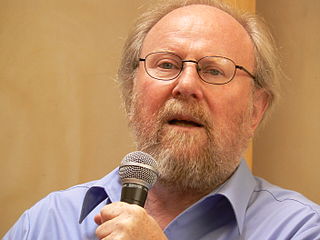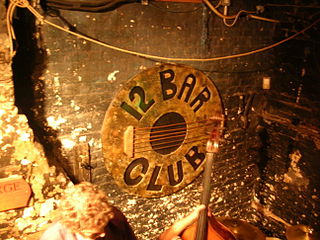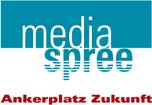
Berlin is the capital and largest city of Germany by both area and population. Its more than 3.85 million inhabitants make it the European Union's most populous city, according to population within city limits. One of Germany's sixteen constituent states, Berlin is surrounded by the State of Brandenburg and contiguous with Potsdam, Brandenburg's capital. Berlin's urban area, which has a population of around 4.5 million, is the most populous urban area in Germany. The Berlin-Brandenburg capital region has around 6.2 million inhabitants and is Germany's second-largest metropolitan region after the Rhine-Ruhr region.

Hamburg, officially the Free and Hanseatic City of Hamburg, is the second-largest city in Germany after Berlin, as well as the overall 8th-largest city and largest non-capital city within the European Union with a population of over 1.9 million. Hamburg's urban area has a population of around 2.5 million and is part of the Hamburg Metropolitan Region, which has a population of over 5.1 million people in total. At the southern tip of the Jutland Peninsula, Hamburg stands on the branching River Elbe at the head of a 110 km (68 mi) estuary down to the North Sea, on the mouth of the Alster and Bille. Hamburg is one of Germany's three city-states alongside Berlin and Bremen, and is surrounded by Schleswig-Holstein to the north and Lower Saxony to the south. The Port of Hamburg is Germany's largest and Europe's third-largest, after Rotterdam and Antwerp. The local dialect is a variant of Low Saxon.

A rave is a dance party at a warehouse, club, or other public or private venue, typically featuring performances by DJs playing electronic dance music. The style is most associated with the early 1990s dance music scene when DJs played at illegal events in musical styles dominated by electronic dance music from a wide range of sub-genres, including drum and bass, dubstep, trap, break, happy hardcore, techno, hardcore, house, and alternative dance. Occasionally live musicians have been known to perform at raves, in addition to other types of performance artists such as go-go dancers and fire dancers. The music is amplified with a large, powerful sound reinforcement system, typically with large subwoofers to produce a deep bass sound. The music is often accompanied by laser light shows, projected coloured images, visual effects and fog machines.

Kreuzberg is a district of Berlin, Germany. It is part of the Friedrichshain-Kreuzberg borough located south of Mitte. During the Cold War era, it was one of the poorest areas of West Berlin, but since German reunification in 1990, it has become more gentrified and is known for its arts scene.

Hippie Hollow Park is a park located on the shore of Lake Travis in northwest Austin. It is the only legally recognized clothing-optional public park in the State of Texas. Though the land is owned by the Lower Colorado River Authority, it is leased to Travis County, whose Parks Department has administered the park since 1985. Sometimes erroneously labeled as a beach, the park actually sits on a somewhat steep slope above Lake Travis with limestone steps that can be quite rugged in some spots. Depending on the water level of the lake, access to the water may require some rock climbing.

Friedrichshain is a quarter (Ortsteil) of the borough of Friedrichshain-Kreuzberg in Berlin, Germany. From its creation in 1920 until 2001, it was a freestanding city borough. Formerly part of East Berlin, it is adjacent to Mitte, Prenzlauer Berg, Kreuzberg and Lichtenberg.

Wolfgang Thierse is a German politician of the Social Democratic Party (SPD). He served as the 11th President of the Bundestag from 1998 to 2005.

Fürstenwalde/Spree is the most populous town in the Oder-Spree District of Brandenburg, Germany.

Berghain is a nightclub in Berlin, Germany. It is named after its location near the border between Kreuzberg and Friedrichshain in Berlin, and is a short walk from Berlin Ostbahnhof main line railway station. Founded in 2004 by friends Norbert Thormann and Michael Teufele, it has since become one of the world's most famous clubs, and has been called the "world capital of techno."

The 12 Bar Club was a music venue in London that opened in 1994 on Denmark Street – known as Britain's "Tin Pan Alley" – just off Charing Cross Road and close to Soho.
Since the 18th century Berlin has been an influential musical center in Germany and Europe. First as an important trading city in the Hanseatic League, then as the capital of the electorate of Brandenburg and the Prussian Kingdom, later on as one of the biggest cities in Germany it fostered an influential music culture that remains vital until today. Berlin can be regarded as the breeding ground for the powerful choir movement that played such an important role in the broad socialization of music in Germany during the 19th century.
An overview of the evolution of Jazz music in Germany reveals that the development of jazz in Germany and its public notice differ from the "motherland" of jazz, the US, in several respects.

Reimar Oltmanns is a well-known journalist and author in Germany.

A nightclub is a club that is open at night, usually for drinking, dancing and other entertainment. Nightclubs often have a bar and discothèque with a dance floor, laser lighting displays, and a stage for live music or a disc jockey (DJ) who mixes recorded music. Nightclubs tend to be smaller than live music venues like theatres and stadiums, with few or no seats for customers.

Mediaspree is one of the largest property investment projects in Berlin. It aims to establish telecommunication and media companies along a section of the banks of the river Spree as well as to implement an urban renewal of the surrounding area. So far, for the most part, unused or temporarily occupied real estate is to be converted into office buildings, lofts, hotels, and other new structures.

Berlin is recognized as a world city of culture and creative industries. Numerous cultural institutions, many of which enjoy international reputation are representing the diverse heritage of the city. Many young people, cultural entrepreneurs and international artists continue to settle in the city. Berlin has established itself as a popular nightlife and entertainment center in Europe.
The German Globetrotter Club Ltd (DZG) is the largest non-commercial community of adventure travellers with about 800 members in 23 countries in Europe. It is the oldest Globetrotters Club after the British one, called simply "The Globetrotters Club".
Knaack was a nightclub in Prenzlauer Berg in Berlin, Germany. It opened in 1952 as a youth club and occasional disco. It then developed during the East German era into a live music venue where many notable German bands played regularly. Gentrification of the surrounding area in the late 2000s led to complaints about the club's noise from residents of newly constructed apartment buildings nearby. A court case resulted, placing restrictions on the noise levels, which the owners judged made the club financially untenable, resulting in its closure on 31 December 2010. After efforts to reopen in another district, the club secured new premises in Prenzlauer Berg and announced in February 2013 that they planned to reopen in 2016. Delays due to construction permits pushed these plans back to 2018. As of 2023 no construction has begun.
Flussbad Berlin is a project that aims to transform the Spree Canal in the downtown Berlin district of Mitte. The idea is to filter the water entering the canal in an ecological manner and have it flow into a "Flussbad" or river pool further downstream. The project was conceived by a group of architects and artists known as "realities:united", and it began receiving support from Germany's Federal Ministry for the Environment as part of their "National Urban Development Projects" programme and Berlin's Senate Department for Urban Development and the Environment in 2014. Since 2012, the non-profit association known as "Flussbad Berlin”, manages the project and fosters its realization. The Flussbad Berlin endeavour has enjoyed increasing popularity and publicity over the past several years and continues to be part of an open discussion involving growing media coverage and ever-broadening public participation.
The modern political squatting movement began in Hamburg, Germany, when Neue Große Bergstraße 226 was occupied in 1970. Squatters wanted to provide housing for themselves amongst other demands such as preventing buildings from being demolished and finding space for cultural activities. The Hafenstraße buildings were first occupied in 1981 and were finally legalized after a long political struggle in 1995. The still extant Rote Flora self-managed social centre was occupied in 1989. Squatting actions continue into the present; more recent attempts are quickly evicted, although the Gängeviertel buildings were squatted and legalized in the 2010s.
















